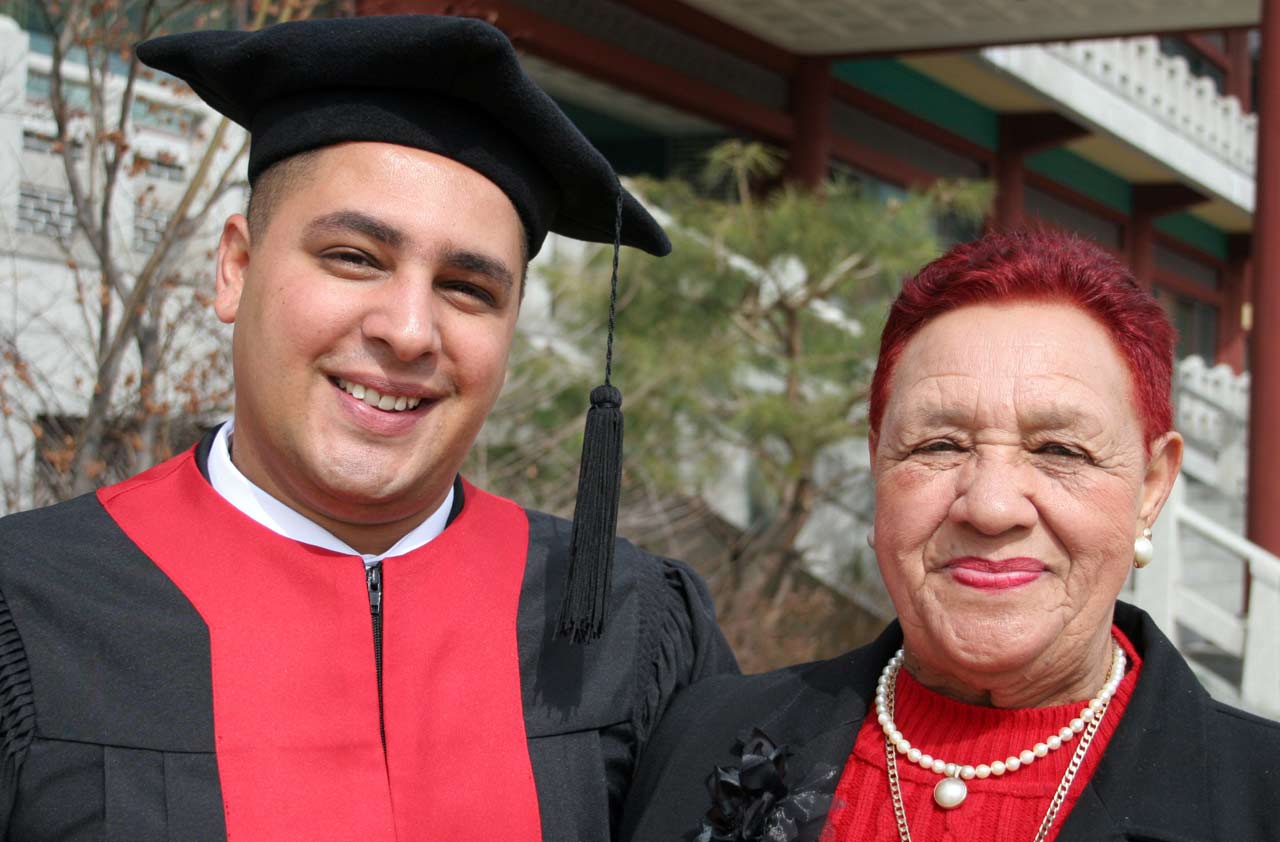Roth IRAs and Financial Aid
You don't have to report retirement accounts on your FAFSA, but some colleges may include the balances in financial-aid calculations. Plus, answers to other college costs questions.

Profit and prosper with the best of Kiplinger's advice on investing, taxes, retirement, personal finance and much more. Delivered daily. Enter your email in the box and click Sign Me Up.
You are now subscribed
Your newsletter sign-up was successful
Want to add more newsletters?

Delivered daily
Kiplinger Today
Profit and prosper with the best of Kiplinger's advice on investing, taxes, retirement, personal finance and much more delivered daily. Smart money moves start here.

Sent five days a week
Kiplinger A Step Ahead
Get practical help to make better financial decisions in your everyday life, from spending to savings on top deals.

Delivered daily
Kiplinger Closing Bell
Get today's biggest financial and investing headlines delivered to your inbox every day the U.S. stock market is open.

Sent twice a week
Kiplinger Adviser Intel
Financial pros across the country share best practices and fresh tactics to preserve and grow your wealth.

Delivered weekly
Kiplinger Tax Tips
Trim your federal and state tax bills with practical tax-planning and tax-cutting strategies.

Sent twice a week
Kiplinger Retirement Tips
Your twice-a-week guide to planning and enjoying a financially secure and richly rewarding retirement

Sent bimonthly.
Kiplinger Adviser Angle
Insights for advisers, wealth managers and other financial professionals.

Sent twice a week
Kiplinger Investing Weekly
Your twice-a-week roundup of promising stocks, funds, companies and industries you should consider, ones you should avoid, and why.

Sent weekly for six weeks
Kiplinger Invest for Retirement
Your step-by-step six-part series on how to invest for retirement, from devising a successful strategy to exactly which investments to choose.
My daughter has earnings from a part-time job, and I would like to get her started on saving for retirement by opening a Roth IRA with a small amount of money -- less than $1,500. In the fall she will be going away to college, and I was told by one financial-aid officer that the Roth would be considered one of her assets and she would have to cash it in to help pay for school.
That doesn't sound right to me. Money in my IRA does not have to be reported on the FAFSA, so why would it need to be reported for my daughter? What are the rules for a college student's assets?
You are correct that the Free Application for Federal Student Aid -- the FAFSA -- doesn't assess retirement accounts when determining how much a family is expected to pay for college. That would include your daughter's retirement account as well as your own.
From just $107.88 $24.99 for Kiplinger Personal Finance
Become a smarter, better informed investor. Subscribe from just $107.88 $24.99, plus get up to 4 Special Issues

Sign up for Kiplinger’s Free Newsletters
Profit and prosper with the best of expert advice on investing, taxes, retirement, personal finance and more - straight to your e-mail.
Profit and prosper with the best of expert advice - straight to your e-mail.
But some colleges do include retirement assets in their financial-aid calculations. Under the federal formula, students are expected to kick in 20% of their assets to pay the college tab. The institutional formula used by some schools assesses student assets at 25%. Check the policy at each school your daughter is considering.
In either case, however, you wouldn't have to cash in your daughter's Roth IRA. Assuming an account balance of $1,500, she might be expected to contribute $300 to $375 to her education. If she (or you) could come up with that much, you wouldn't have to tap the account.
Using a Roth for college expenses
I was interested to read in one of your recent columns that a Roth IRA can be used to pay for college. Are there any restrictions on which college expenses are eligible? For example, could you use the money to buy a car if you need transportation to and from school?
Unfortunately, the rules aren't that generous. Withdrawals from a Roth IRA can be used for "qualifying expenses," defined as tuition, books, supplies and equipment, enrollment fees, and room and board if you're at least a half-time student. But wheels don't make the cut.
Bear in mind that you can withdraw your Roth contributions for college with no tax consequences. You can withdraw your earnings without paying a 10% early-withdrawal penalty, but you'll owe income taxes.
Consolidating federal student loans
I consolidated my Stafford student loans after graduation, but the interest rate is 7.5%. Can I re-consolidate them at an even better rate?
Sorry, but you only get one chance to consolidate federal Stafford loans.
Profit and prosper with the best of Kiplinger's advice on investing, taxes, retirement, personal finance and much more. Delivered daily. Enter your email in the box and click Sign Me Up.

Janet Bodnar is editor-at-large of Kiplinger's Personal Finance, a position she assumed after retiring as editor of the magazine after eight years at the helm. She is a nationally recognized expert on the subjects of women and money, children's and family finances, and financial literacy. She is the author of two books, Money Smart Women and Raising Money Smart Kids. As editor-at-large, she writes two popular columns for Kiplinger, "Money Smart Women" and "Living in Retirement." Bodnar is a graduate of St. Bonaventure University and is a member of its Board of Trustees. She received her master's degree from Columbia University, where she was also a Knight-Bagehot Fellow in Business and Economics Journalism.
-
 Nasdaq Leads a Rocky Risk-On Rally: Stock Market Today
Nasdaq Leads a Rocky Risk-On Rally: Stock Market TodayAnother worrying bout of late-session weakness couldn't take down the main equity indexes on Wednesday.
-
 Quiz: Do You Know How to Avoid the "Medigap Trap?"
Quiz: Do You Know How to Avoid the "Medigap Trap?"Quiz Test your basic knowledge of the "Medigap Trap" in our quick quiz.
-
 5 Top Tax-Efficient Mutual Funds for Smarter Investing
5 Top Tax-Efficient Mutual Funds for Smarter InvestingMutual funds are many things, but "tax-friendly" usually isn't one of them. These are the exceptions.
-
 I Want to Help Pay for My Grandkids' College. Should I Make a Lump-Sum 529 Plan Contribution or Spread Funds out Through the Years?
I Want to Help Pay for My Grandkids' College. Should I Make a Lump-Sum 529 Plan Contribution or Spread Funds out Through the Years?We asked a college savings professional and a financial planning expert for their advice.
-
 Ask the Editor, September 12: Tax Questions on 529 Plan Rollovers to a Roth IRA
Ask the Editor, September 12: Tax Questions on 529 Plan Rollovers to a Roth IRAAsk the Editor In this week's Ask the Editor Q&A, we answer four questions from readers on transferring 529 plan money to a Roth IRA.
-
 8 Times You Should Contact Your Financial Adviser
8 Times You Should Contact Your Financial AdviserWhether you experience a job change or begin caring for aging parents, your financial adviser can help manage the impact on your financial plan.
-
 Do You Save for College or for Retirement? What Parents Need to Know
Do You Save for College or for Retirement? What Parents Need to KnowPaying for College Here's a message that all parents need to take to heart: It's OK to put yourself ahead of your kids. In fact, putting your retirement needs ahead of their college costs is not only necessary but wise ... and, ultimately, thoughtful, too.
-
 How to Help Grandchildren Pay for College
How to Help Grandchildren Pay for CollegePaying for College Follow these tax-saving strategies while gifting money to help fund their education.
-
 How to Start Saving for Your Child's College Education
How to Start Saving for Your Child's College EducationPaying for College It can feel overwhelming, but don't let that stop you, because you really can do it. Start today. Here's how.
-
 How to Fund a Memorial Scholarship to Honor a Veteran
How to Fund a Memorial Scholarship to Honor a VeteranPaying for College With the help of a college or community foundation, you can establish a scholarship in the name of a loved one to help students in perpetuity.
-
 Gifting College to Your Grandchild
Gifting College to Your GrandchildPaying for College With college costs skyrocketing, some grandparents are looking for ways to help pay for grandkids' educations. But before you pull out the checkbook, consider these smart strategies.